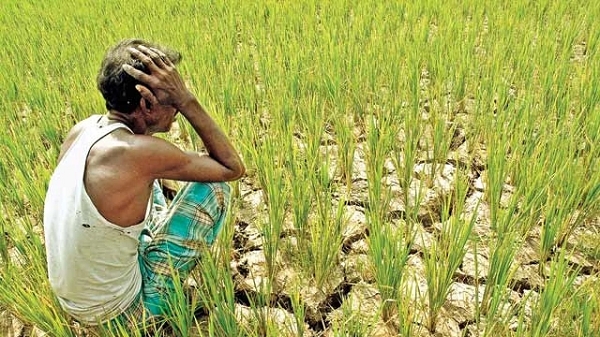Climate Change results in reduced yield of major crops
Total Views | 218
New Delhi, Feb 10: The Union Ministry of Agriculture and Farmers' Welfare has released scientific data based on climate change suggesting reduction in the yield of crops like wheat and rice, where an expected growth in the coming year for chickpea yield. The changing climatic conditions around the globe have resulted in a rise in all India mean temperature and increased frequency of extreme rainfall events in the last three decades, which has eventually affected India's agricultural yield.

The recorded increased frequency of extreme rainfall events in the last three decades, has caused fluctuation in production of major crops in different years. In order to study the observed climatic fluctuation, the impact of climate change on Indian agriculture was studied under National Innovations in Climate Resilient Agriculture (NICRA). According to the study, rainfed rice yields in India are projected to reduce marginally (<2.5 per cent) in 2050 and 2080 and irrigated rice yields by 7 per cent in 2050, whereas 10 per cent in 2080. Further, wheat yield is projected to reduce by 6-25 per cent in the year 2100 and maize yields by 18-23 per cent. However, future climates have been estimated to benefit chickpea with an increase in productivity (23-54 per cent).
The Indian Council of Agricultural Research (ICAR) has initiated a network project NICRA during 2011 to address the impact of climate change on Indian agriculture. A High Level Monitoring Committee (HLMC) under the Chairmanship of Secretary, DARE and DG, ICAR with invited members representing different ministries of the Union Govt is reviewing the NICRA project. The committee recommends measures to be taken through NICRA for making Indian agriculture more resilient to the changing climate. Besides an expert committee also reviews the project periodically and advises on various aspects.
The Indian Council of Agricultural Research (ICAR) undertakes vulnerability assessment of Indian Agriculture to climate change for 573 rural districts of India, excluding the UTs of Andaman and Nicobar Islands and Lakshadweep. According to the vulnerability analysis, 109 districts out of 573 rural districts, that counts 19 per cent of total districts), are ‘very high-risk’ districts, while 201 districts are risk districts.
According to integrated simulation modelling studies, it has been indicated that under Representative Concentration Pathway 4.5, the maximum temperature is expected to rise by 1 to 1.3 degrees in 256 districts and by 1.3 to 1.6 degrees in 157 districts between the years 2020 and 2049. The increase ranged from <1.3 degrees in 199 districts to >1.6 degrees in 89 districts is likely to be affect the cultivation of wheatdue to heat stress.
Also read: Heritage sites become more friendly to Specially abled visitors





